Description
Want some great coffees & stellar values? This bundle is for you!
All very fresh coffee, current or new crop. Great premium screens on Co-op and Mill production coffees. Larger production coffees keep the costs down. Although these are not single farm micro lots, they are very tasty coffees giving the true terroir of their production areas and producing nations. A pleasure to drink and 100% responsibly sourced.
This bundle contains 1 pound each of:
Nicaraguan RFA Selva Negra – Washed Processed
One of the most sustainable farms in the world! A wonderful direct relationship coffee. Nicaraguan Selva Negra coffee is cultivated in the most ecologically sustainable and socially responsible way possible. Learn more by reading our Selva Negra Grower Profile.
Selva Negra Estate Coffee is grown at a high altitude in a shaded environment. This allows the bean to have a slow development cycle which instills an intense and fulfilling flavor to each bean. The coffee is not only 100% Arabica, but more importantly it is mostly Bourbon and Typica strains (which produce higher quality beans than other varieties of coffee trees). The region of Matagalpa, Nicaragua is mountainous with excellent volcanic soil producing exceptional beans. Finally, the coffee is prepared using an environmentally friendly washing process, which gives the coffee still one more unique quality enhancing aspect.
Tasting Notes:
A very nice and super fresh batch of their traditional farm aggregate. A little hint of citrus floral upfront balanced with nice complex malty tones. Great everyday drinker at a medium roast, balanced with a sweet edge. A heftier cup at the darker roasts and equally as tasty, fuller bodied with strong malty and smoky tones but still retains that sweeter edge to it.
Roasting Notes:
Easy to roast, great prep on the beans and roast pretty even. Make sure hit a medium roast or darker, with being a little lower acidity, not a ton of jazz at those lighter roast points but as you progress the roast it builds that great malty tone that Nicaragua is known for.
Ethiopian Yirgacheffe 2 – Hirut Washed Processed
This Yirgacheffe lot comes from 232 smallholder farmers who deliver ripe cherries to the Dumerso (Hirut) washing plant, just north of the town of Yirga Chefe, in the heart of the Gedeo Zone. Grown at an altitude of 1,900 to 2,200 meters above sea level on Vertisol soils and composed of Ethiopian landraces, this coffee is completely washed and dried on raised beds—a classic.
Dumerso is part of a narrow mountain plateau famous for its dense smallholder plantations and highly competitive processors, the terroir world-renowned as “Yirgacheffe.” The mill was built in 1998, acquired by Hirut Berhanu in 2010, completely renovated, and reopened for the 2013 harvest. Currently, the mill employs over 400 seasonal workers (approximately 95% women) and is managed on-site by Abenet Alemu (mill manager and quality control), originally from Yirgacheffe. Together, they have grown Dumerso into a center of quality and community.
As Dumerso matured, the team formalized Dumerso Industrial Trading PLC to mill and export directly, expanding the benefits: loans and healthcare for staff, housing for seasonal workers, local energy equipment for nearby residents, and a project to press parchment into firewood (additional income and reduced pressure on forests). The mill is certified Organic and Rainforest Alliance (at the mill level), while this particular batch is sold as Conventional.
Tasting Notes: A foamy and sweet cup with bright citrus (lemon), floral jasmine notes, and caramel sweetness. The mouthfeel is silky and creamy; as the roast deepens, a clean finish of cocoa and honey is expected, retaining Yirgacheffe’s characteristic clarity.
Roasting Notes: High-altitude washed lot, forgiving but receptive. Light roasts express floral/tea notes and citrus glimmers; very clean. By opting for a Medium roast, you’ll find a better balance: the lemon softens toward caramel/honey, the floral notes remain present, and the body is rounded.
Coming from the Bener Meriah Regency, Aceh District, on the island of Sumatra, Indonesia. This is a lovely example of traditional Sumatra coffee. Unique stuff comparatively to African or American coffees. Best at darker roasts. Wet-hulling is their traditional processing method and differs from anywhere else in the world. Leaves the coffee thick and dark toned, a semi-sweet richness. Rustic earthy chocolate tones with spice notes pretty much nail the terroir, the spice notes ranging from peaty, to herbal to incense like depending on the batch. Sometimes you get a little hint of acidity, or soft fruit mixing in for a rarity but this particular batch is low acidity and not fruity at all.
This region of Indonesia is also referred to as the Gayo land because the coffee farmers are from the Gayonese ethnic group. On average, producers cultivate coffee on 2.5 acres of land using their own micro-mills to depulp, ferment, wash and partially dry the coffee in the parchment. The parchment is removed while the moisture is high through the wet-hulling process (called Giling Basah in Indonesian) and then the exposed bean is dried to a moisture percentage acceptable for export. This Indonesian processing method gives the bean its unique color and the hallmark Indonesian profile.
Tasting Notes: Nice, clean and fresh organic Sumatra! These traditional wet-hulled Sumatra beans are best from medium to dark roasts. Wet-hulled coffees are seldom tasty at light roast levels, generally just grassy and earthy. From medium to dark they are fuller bodied, low acidity and darker toned, with a predominately chocolaty cup profile. Very classic tasting Sumatra stronger on the peat like tones and spice notes. A little sweet floral upfront and smoky in the aftertaste. Gets strong into the very dark roasts turning semi-sweet with very forward smoky bakers chocolate notes.
Roasting Notes: A decent quality screen on these beans keeps them easy to roast. Very little chaff. Wet hulled coffees will roast a bit two toned, and are not the best light roast coffees. Shooting for a medium to dark roast will be wise, make sure the lighter beans make it through first crack. Most will like it borderline 2nd crack, as soon as you see any signs of smoke or oil on the surface, cool it out. Being already a bit lower acidity, we like to roast them a little quicker, retains a bit more sweetness with crisper tones.
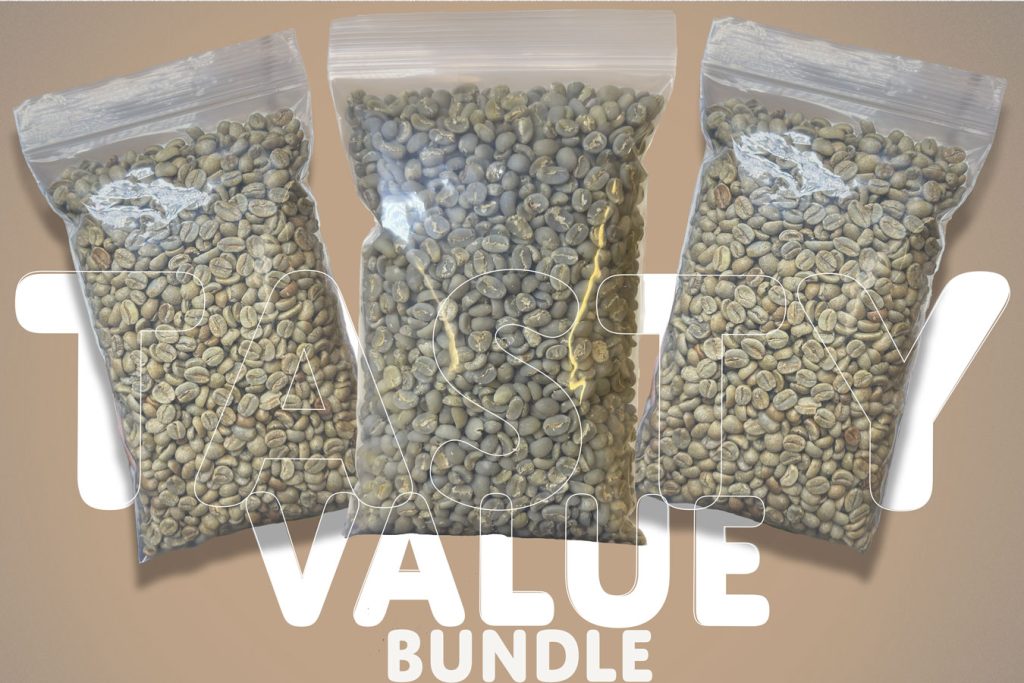
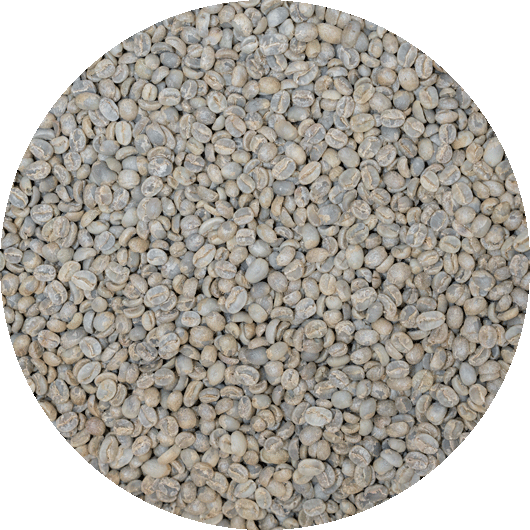
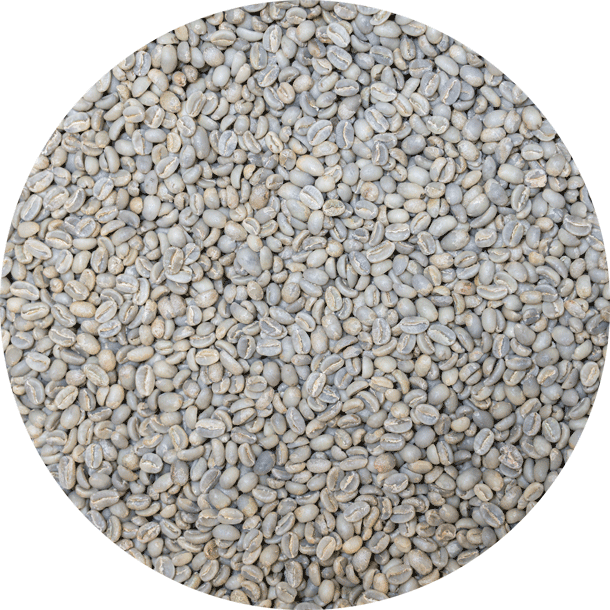
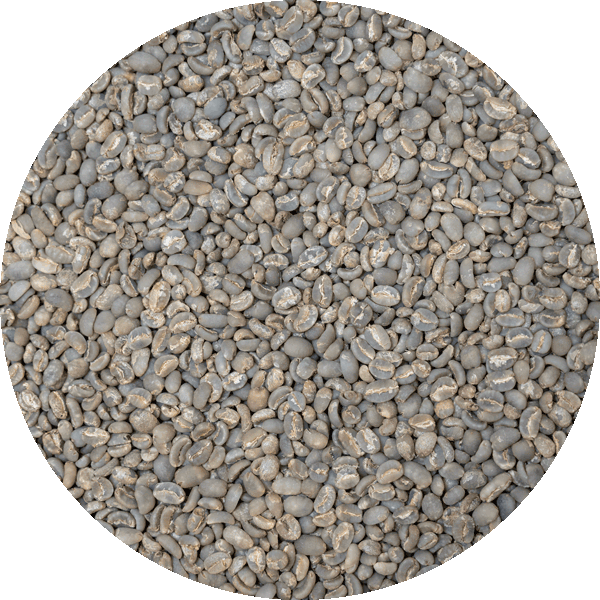
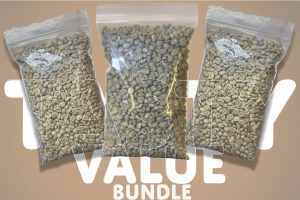
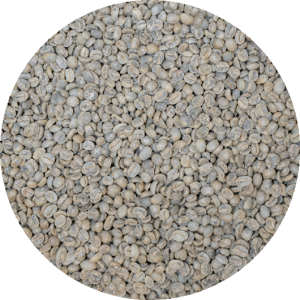
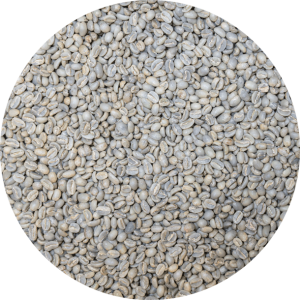
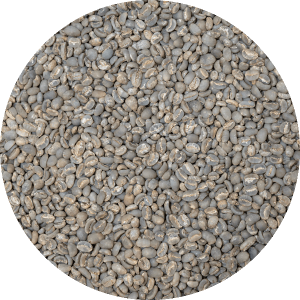
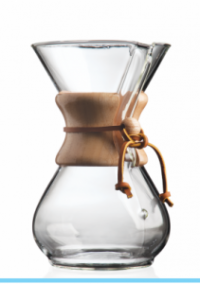
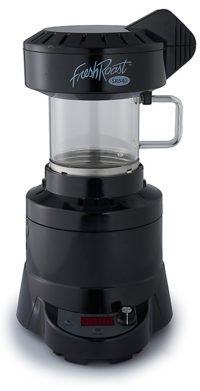
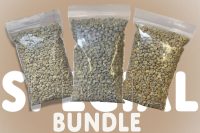
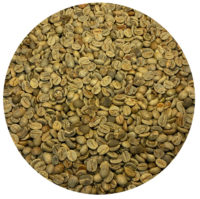

Reviews
There are no reviews yet.